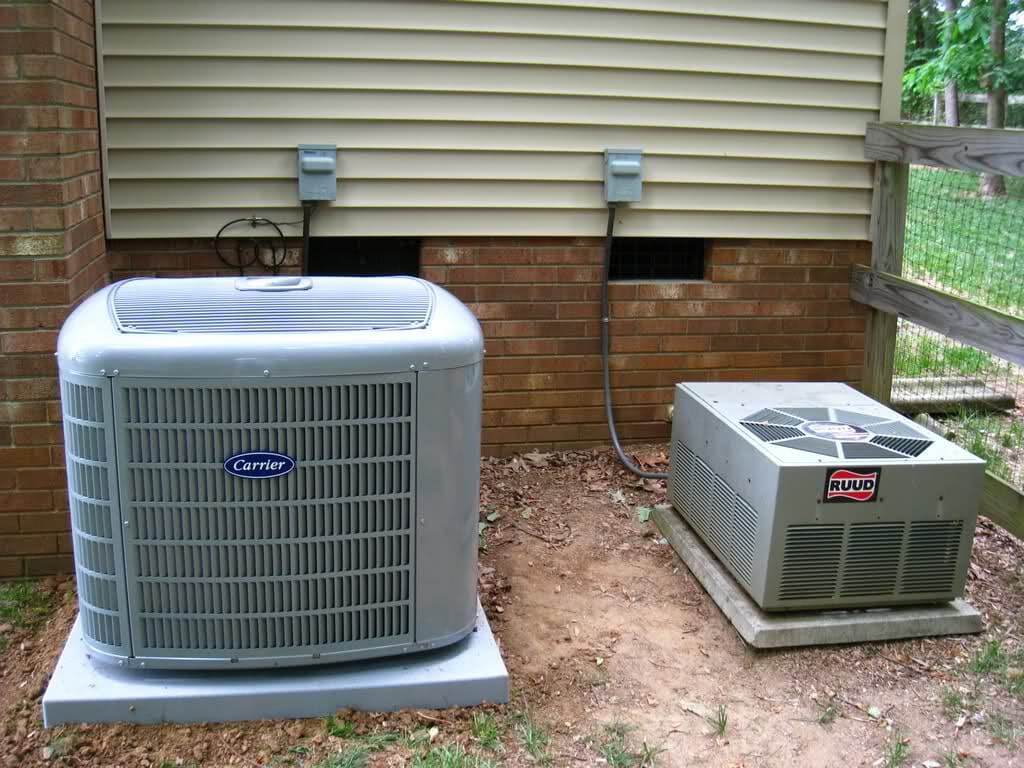Are you doing a roofing project?
Modernize can pair you with three to four pros in your area, so you can compare options and save time and money.
Your contractor will present either one of two types of contracts for you to sign. One is a fixed point, or fixed price, contract. The other is a time and materials contract. Depending on the scope of your HVAC, solar, windows, or roofing project, a time and materials contract may be the best option for you. Understanding what goes into a time and materials contract is one of the most important aspects of your contract, and it’s something you should be aware of. Here are some examples of when a time and materials contract is great for your project, and times when a fixed point contract would be the better option.

A time and materials contract is used when it’s difficult for the contractor to provide an accurate estimate, or if the project’s scope is expected to change often during the course of construction. Keep in mind that these instances are rare. The homeowner agrees to pay for the cost of labor, materials used, and the work done. If your project can be clearly defined— for example, if you’re simply upgrading your windows — a time and materials contract would not make sense and you should either ask for a fixed point contract or look for another contract if they refuse to define the scope.
Since you will be being charged for time, it’s important to agree upon an hourly rate for the contractor and members of his or her team. For example, does the rate include time spent shopping for materials, or just when they are working on your roofing project? This should be spelled out in the contract. The definition of materials should also be clearly stated, to avoid unrelated charges being added to your final bill. Often times, the homeowner and contractor can agree to set a maximum cost, or maximum price, that the contractor will not exceed. To help you decided on whether a time and materials contract is right for you, we’ve listed some common pros and cons to signing a time and materials contract.

Pros and Cons of Signing a Time and Materials Contract
Pro
When a time and materials contract is presented by a seasoned solar, HVAC, roofing, or windows contractor, it can be just as effective as a fixed point contract. This, of course, depends upon the contractor’s team and the scope of the project. You already know to talk with the contractor’s references, so it may be a good idea to ask them what type of contract they signed, and if they were pleased with this choice.
Find the Right Contractor for Your Roofing Project
Whether you’re ready to begin your project now or need some expert advice, our network of contractors are here to help. With a few simple questions, we’ll find the best local professionals for you
Con
A contractor can charge the homeowner to correct mistakes the contractor’s team made. Unless otherwise stated in the contract, there is nothing protecting the homeowner against this. Fixing mistakes not only extends the “time” portion of the contract, because work needs to be added to the scope just to fix the project, but it also requires more “materials” to fix the mistake. This style of contract also does not cover the cost of replacing any materials that are stolen from a job site, which is important to consider.
Pro
The homeowner can save money if the project is completed earlier than expected. In a fixed price contract, there are no bonuses for completing the project before the estimated date. While not necessarily a bonus, not having to pay for labor any longer than necessary may feel like one.
Con
The contractor may define everything as a billable hour, while the homeowner disagrees. If you agree upon a time and materials contract, be sure to agree upon what counts as a billable hour. Also make sure to ask if they bill for transportation to and from the job site, including running to the hardware store.
Pro
With a time and materials contract, there is no need to fill out extra paperwork when the scope of the project changes. This can save time if your contractor sees something that can be addressed right away, or if you change your mind often during a project. However, if you’re trying to keep an eye on the cost of the project, you should ask that your contractor still get approval before changing the scope.
Find the Right Contractor for Your Roofing Project
Whether you’re ready to begin your project now or need some expert advice, our network of contractors are here to help. With a few simple questions, we’ll find the best local professionals for you
Reviews from Real Homeowners
Welcome to Homeowner Resources! We are the Modernize blog. Modernize pairs more than 3 million homeowners a year with pre-vetted contractors in their area. This blog started because we believe homeowners should know everything about their homes, from how their HVAC works to which front door colors they might love. On Homeowner Resources, you can find information on every part of your home, right down to how you can negotiate with contractors to get the best price. Here's more about the blog.
Need a contractor? Learn more about how Modernize finds the right pro for you.



